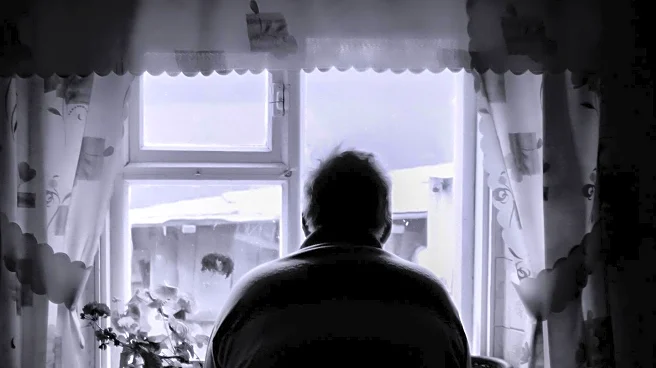What's Happening?
A recent study published in JAMA Network Open reveals that childhood loneliness is linked to accelerated cognitive decline and a higher risk of dementia in adulthood. The study highlights that feelings of isolation during childhood can lead to maladaptive coping mechanisms and adverse effects on neurodevelopment. Researchers found that childhood loneliness can trigger brain-compromising effects such as elevated cortisol levels and immune system dysregulation, potentially altering brain structure and function. The study emphasizes the importance of addressing childhood loneliness to prevent long-term cognitive impairment.
Why It's Important?
The findings underscore the critical need for public health initiatives to address childhood loneliness, which can have lasting impacts on cognitive health. With 80% of Gen Z reporting feelings of isolation, the study highlights a growing concern that could affect future generations. By understanding the link between early loneliness and cognitive decline, policymakers and educators can develop strategies to enhance social support networks and create supportive environments. This research could lead to interventions that improve mental health outcomes and reduce the risk of dementia.
What's Next?
The study authors hope their findings will inspire public health initiatives aimed at preventing and reducing loneliness in early life. Effective strategies may include increasing opportunities for social contact, promoting social skills development, and providing mental health services targeting childhood loneliness. These efforts could support cognitive health and well-being across all ages, potentially reducing the incidence of dementia and other cognitive impairments.










